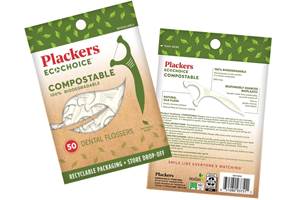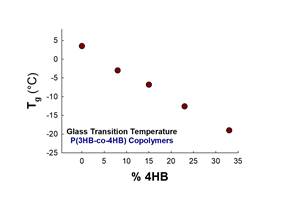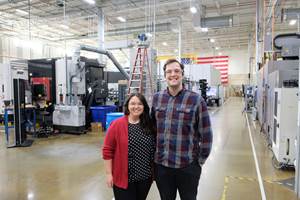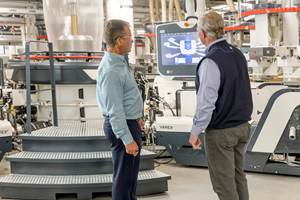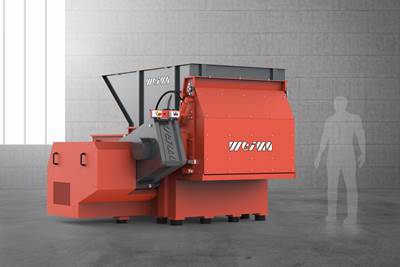3D Printer Manufacturer Now Offers Bio-Based, Recyclable Printing Materials
This collaboration gives customers a highly efficient process that eliminates production waste, minimizes energy consumption and enables flexible, localized, on-demand production with a smaller environmental footprint.
The Industry, a Finnish manufacturer of large-scale 3D printers, is now offering the patented bio-based and recyclable Sulapac materials for its customers. This partnership is said to empower businesses to make a positive impact on the environment while boosting efficiency and exceeding customer expectations.
The collaboration between the Helsinki-based material innovation company Sulapac and the Swedish 3D printing expert The Industry opens up new avenues for circular economy and climate action. It brings together cutting-edge expertise in biomaterial development and industrial engineering with shared values of innovation, sustainability and quality.
Manufacturing with The Industry’s next-generation 3D printers is a highly efficient process that eliminates production waste, minimizes energy consumption and enables flexible, localized, on-demand production. Choosing sustainable Sulapac as the printing material over conventional plastic lowers customers’ environmental footprint even further.
Made of biodegradable biopolymers and sustainable fillers such as wood from industrial sidestreams, Sulapac materials have a low carbon footprint. They are safe for people and the planet throughout the life cycle with zero persistent microplastics or toxic substances left behind. Also, Sulapac materials are recyclable by design and can be made with recycled content.
In addition to requirements for environmental responsibility, the materials selected for The Industry’s material library must fulfill strictly defined technical criteria. Sulapac Flow 1.7, a beautiful wood- composite, and Sulapac Universal Heat 30, a bio-based material with good heat endurance and ability to stand high pressure, have performed extremely well in comprehensive testing conducted by The Industry, both in terms of mechanical properties and processability.
“We are very proud of our partnership with Sulapac due to the exceptional quality of their materials and their seamless compatibility with our MAGNUM printer,” says Jonas Carlsson, CEO of The Industry Sweden. “As we always strive to give the best to our customers. We truly believe that materials like Sulapac will have a strong positive impact on sustainable global production.
“In our experience, modern businesses are constantly searching for new materials that can convey a premium look and feel,” Carlsson adds. “After running multiple tests on our MAGNUM printer, we can say without a doubt that Sulapac managed to live up to the expectations and we can only foresee a positive increase in demand for their materials across various industries working with additive manufacturing technologies.”
Sulapac Flow 1.7 and Universal Heat 30, both food-contact compliant and industrially compostable certified, are now among the recommended feedstock materials for MAGNUM printers, The Industry’s spearhead product. Companies can also order products printed from Sulapac.
Sulapac can be used in 3D printed furniture, prototypes, machine parts and design items, and more. Sulapac Universal Heat finds additional applications, including industrial molds for die casting, cement casting, die molding and pressure molding.
“Thanks to the cooperation with The Industry, we have started to discover the variety of possibilities for Sulapac materials in 3D printing,” says Emmi Randell, Sulapac head of business development. “Their technical fit and unparalleled sustainability features combined with the many benefits of 3D printing offer endless opportunities for companies willing to lead the way towards a cleaner future.”
Related Content
How to Optimize Injection Molding of PHA and PHA/PLA Blends
Here are processing guidelines aimed at both getting the PHA resin into the process without degrading it, and reducing residence time at melt temperatures.
Read MoreFilm Extrusion: Boost Mechanical Properties and Rate of Composting by Blending Amorphous PHA into PLA
A unique amorphous PHA has been shown to enhance the mechanical performance and accelerate the biodegradation of other compostable polymers PLA in blown film.
Read MoreScaling Up Sustainable Solutions for Fiber Reinforced Composite Materials
Oak Ridge National Laboratory's Sustainable Manufacturing Technologies Group helps industrial partners tackle the sustainability challenges presented by fiber-reinforced composite materials.
Read MorePregis Performance Flexibles: In the ‘Wow’ Business
Pregis went big and bold with investment in a brand-new, state-of-the-art plant and spent big on expanding an existing facility. High-tech lines, well-known leadership and a commitment to sustainability are bringing the “wow” factor to blown film.
Read MoreRead Next
Recycling Partners Collaborate to Eliminate Production Scrap Waste at NPE2024
A collaboration between show organizer PLASTICS, recycler CPR and size reduction experts WEIMA and Conair will seek to recover and recycle 100% of the parts produced at the show.
Read MorePeople 4.0 – How to Get Buy-In from Your Staff for Industry 4.0 Systems
Implementing a production monitoring system as the foundation of a ‘smart factory’ is about integrating people with new technology as much as it is about integrating machines and computers. Here are tips from a company that has gone through the process.
Read More

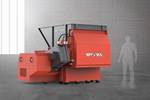












 (2).jpg;maxWidth=300;quality=90)




